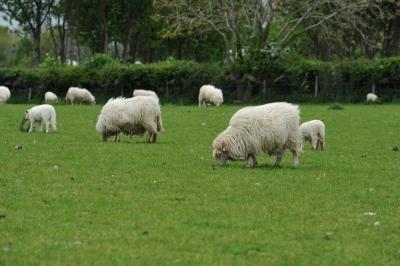Implementing advanced nutritional management in the Welsh sheep industry
Optimal nutrition underpins effective and efficient livestock production. Grass alone may not provide all the nutritional elements required by ewes and sometimes nutritional supplementation is required to improve productivity. In the UK as a whole, the decision to supplement is based on a test of the grass/forage, soil or the sheep. However, the only way to assess whether the sheep are supported nutritionally is to investigate the nutrient concentrations within the sheep and compare them to established norms. Traditionally in the UK this has been carried out by taking blood samples from a sample of sheep. Blood concentrations can respond to diet changes within days and may also be influenced by other disease processes. Because of this, basing the results purely on the bloods alone only gives part of the story.
Live animal liver biopsies provide different information to blood in that it provides a much longer-term historical estimation of trace element status. The technique is proven to be quick, safe and reliable.
Blood analysis is still useful in conjunction with this as it can provide short term information indicative of current supply and response, as well as information regarding element competition. The blood and liver samples taken in parallel provide the most comprehensive indication of historic and current trace element status and the best information to formulate management advice for future dietary adjustments.
In this project twelve farms from across north Wales used this dual sample approach in the Welsh sheep context, together with an analysis of the available forage. The project aimed to utilise an intelligent and progressive approach to nutritional planning in breeding ewes.
Project outcomes
- There are big improvements to be made in managing nutrition on sheep farms and a key intervention would be for farmers to adopt regular body condition scoring, adjusting grazing to enable sheep to meet pre-established targets at key times of the year.
- Parasitism remains an important feature of flock management and regular monitoring of control programmes in necessary to ensure they remain effective.
- Infectious diseases are common causes of production problems; proactive investigation can ensure appropriate action is taken in the future.
- Trace elements
- a. Trace elements are an important component in proactive and optimal nutritional planning but are far less important when compared to the overall availability of forage and the body condition of the ewes.
- b. The techniques used in this project were extremely useful in determining the trace element needs of the ewes and in monitoring the response to supplementation.
- The old adages of ‘if you can’t measure it, you can’t manage it’ and ‘things are not always as they seem’ were frequently borne out throughout this project. As farms become larger and there is a move to focus on optimising production, close working relationships will need to continue to be developed between farmers and veterinary and consultancy services to enable farmers to achieve these goals.

